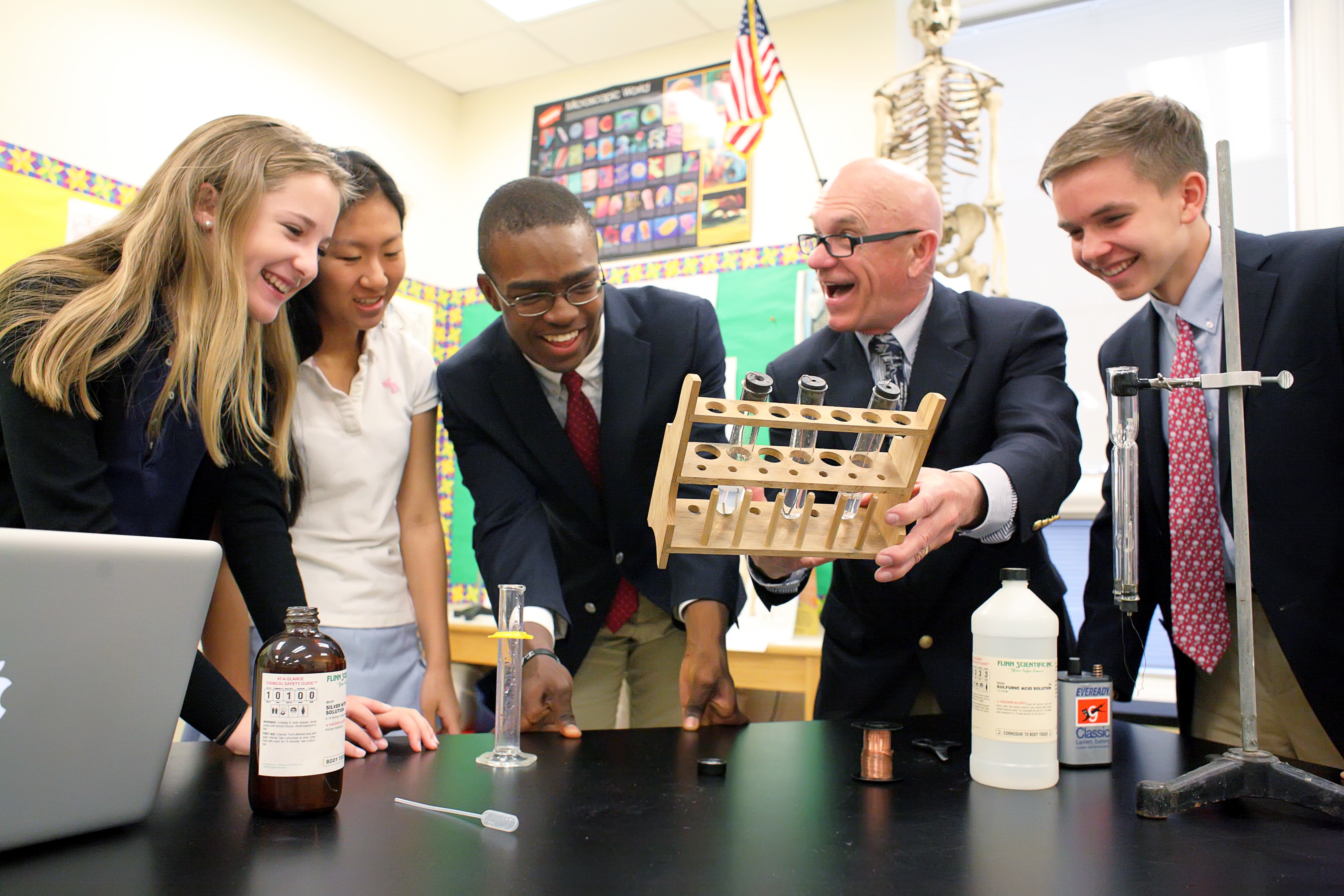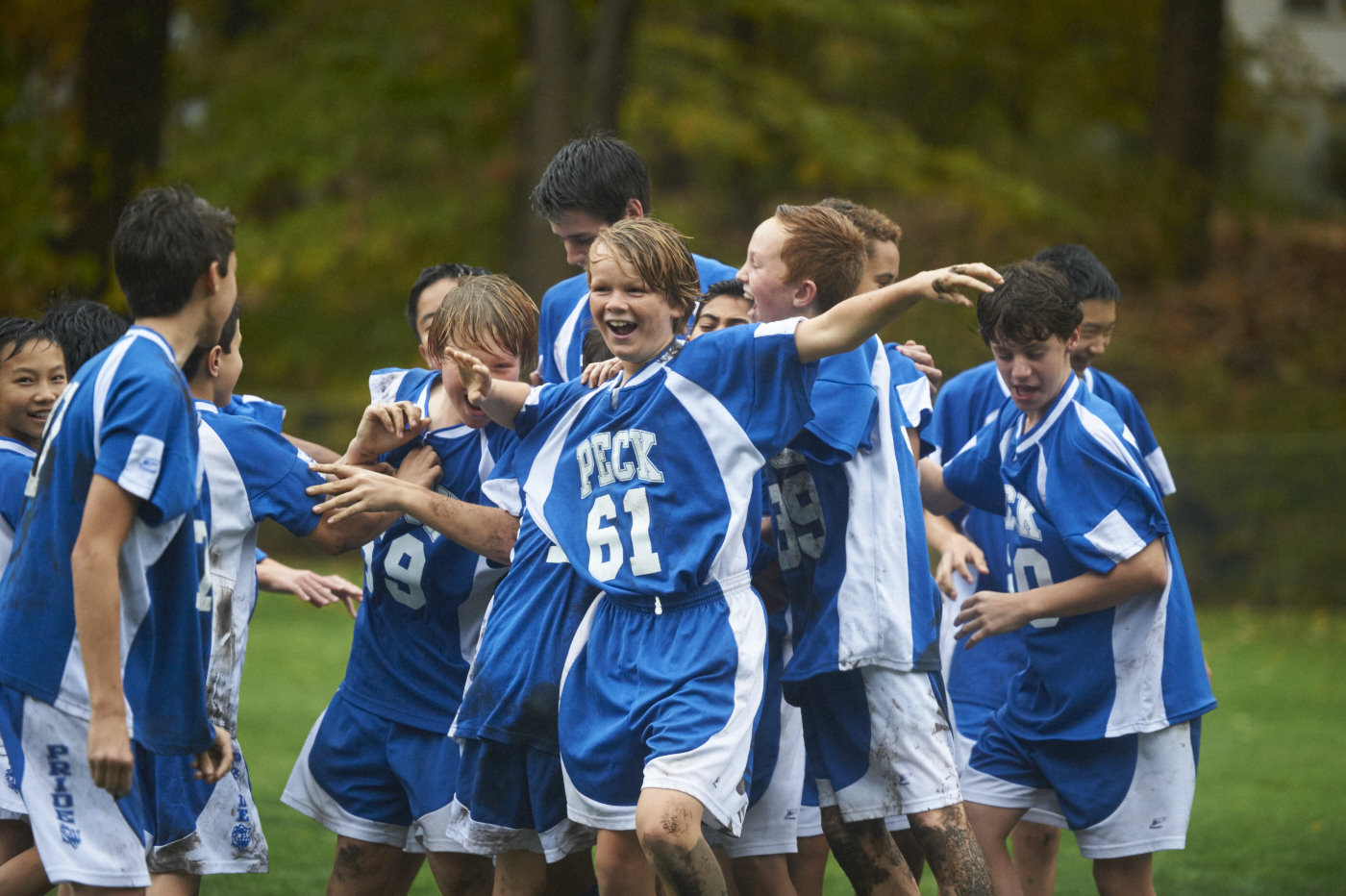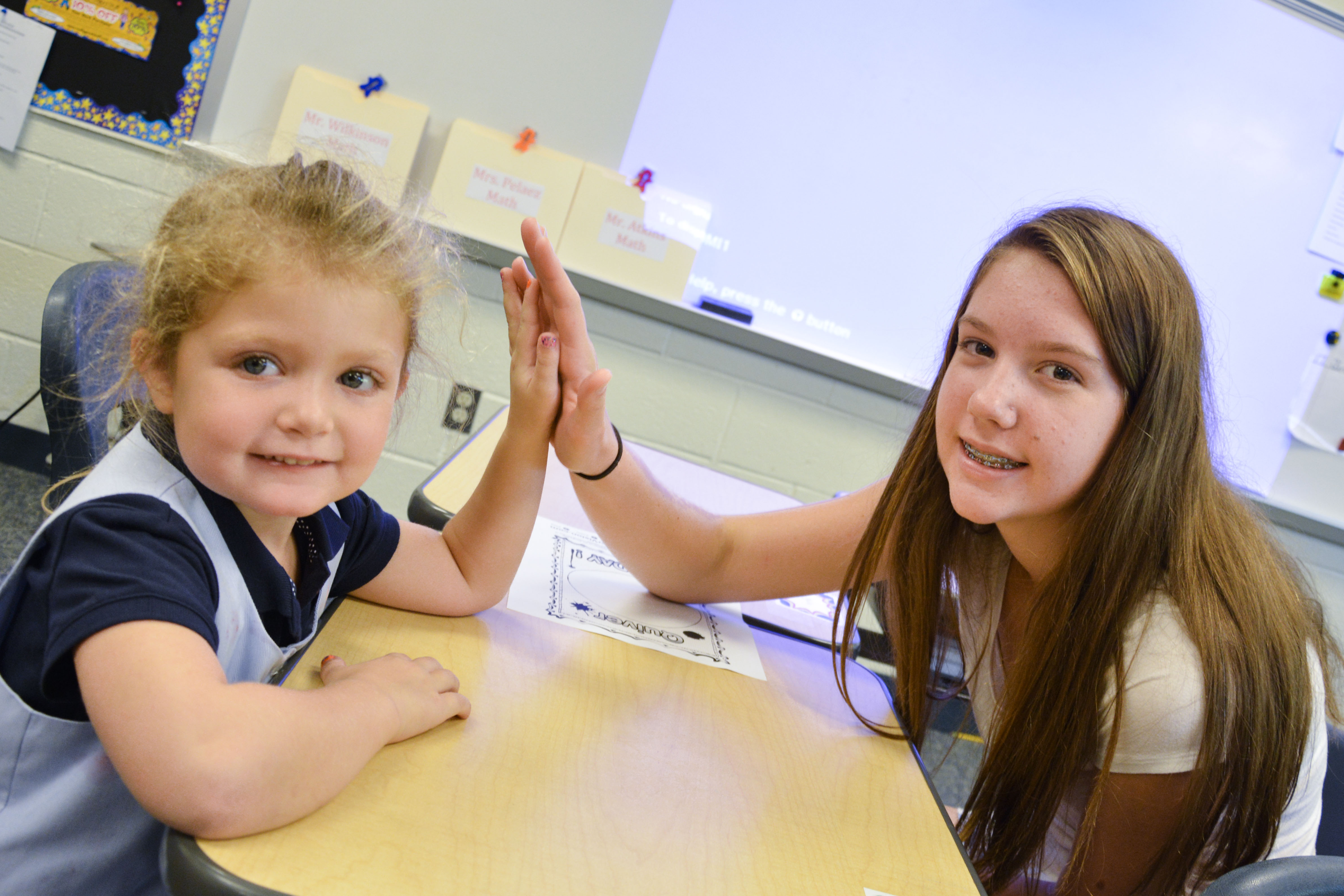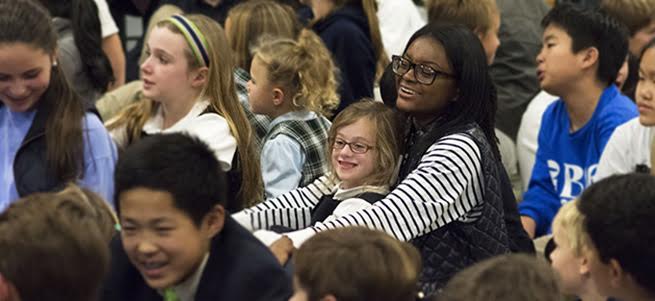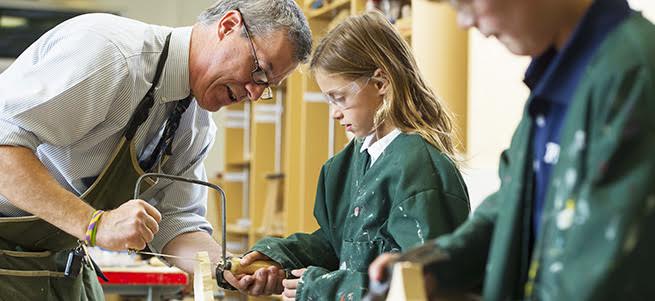CHRIS WEAVER, DIRECTOR OF CURRICULUM & FACULTY DEVELOPMENT: The phrase student-centered learning has been around awhile. Most people understand the idea, at least in a broad sense. Student-centered means shifting the focus of instruction from the teacher to the student – and by doing so, giving students more choice, agency, and ownership.
At its root, the phrase is a reaction to another kind of classroom, one that is usually termed teacher-centered. Here the image is most often of a lecture. The teacher is at the front and shovels the content to the students who eagerly (or not so eagerly) take it in.
On a gut level, these two opposites – student-centered and teacher-centered – are attractive because they are simple and direct; you can grasp them in an instant. They aren’t, however, particularly actionable. You can put students at the front and provide lots of choice, but that doesn’t instantly translate to a rich learning experience.
The other danger of clinging too tightly to these opposing views is that they often put teachers on the defensive. After all, it’s not very pleasant to have your meaningful and important work, in all its daily nuance and complexity, so narrowly reduced.
So what is an actionable approach to student-centered learning? How we can bring teachers into the work in a way that is genuine and meaningful? What are the opportunities to bring students more fully into the process of their own learning? How can we leverage these opportunities to help students become better problem solvers, as well as more agile and independent learners?
Here are three approaches that I’ve found helpful…
